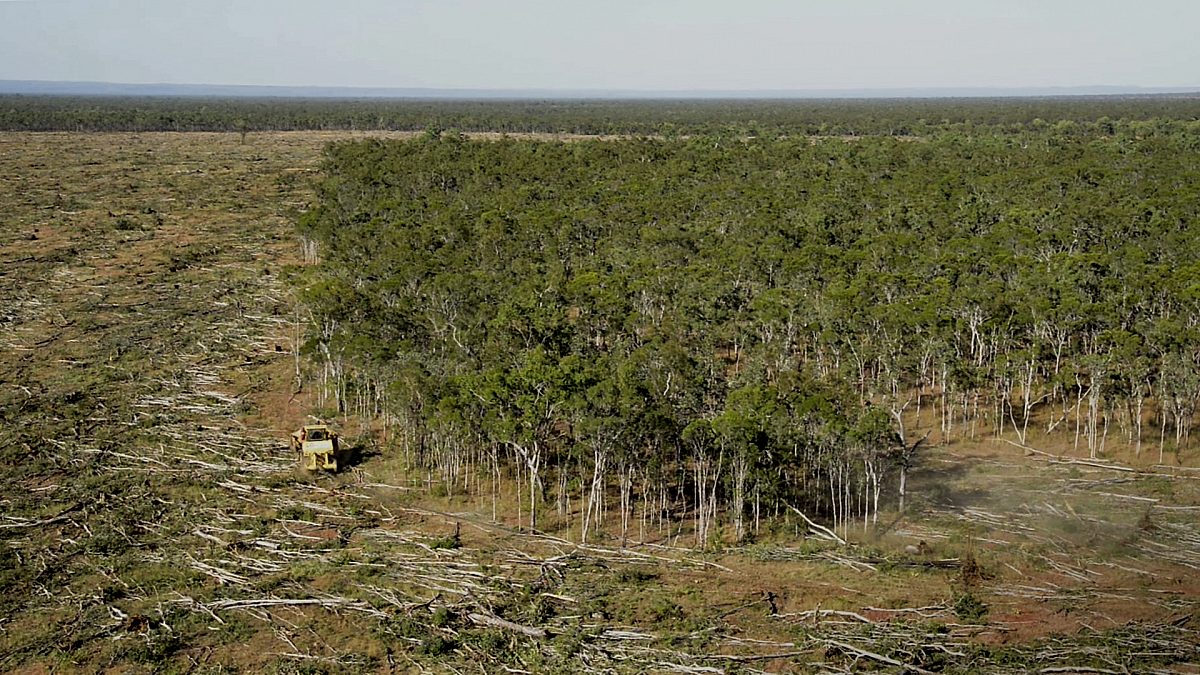
Take deforestation off the menu
Right now Australian consumers can't know if the beef they buy is linked to deforestation
Australia has joined a club that no one should be proud of. We are one of the world’s top 10 hotspots for deforestation, alongside places like the Amazon and Borneo.
Deforestation is releasing carbon into the atmosphere and destroying the habitat of many of our unique species. Our land-use analysis has shown that majority of deforestation and land clearing in Queensland is linked to beef production.
But deforestation impacts don’t just remain on the land. Poor water quality flowing from deforested areas is one of the largest threats to our waterways and oceans, including the iconic Great Barrier Reef.
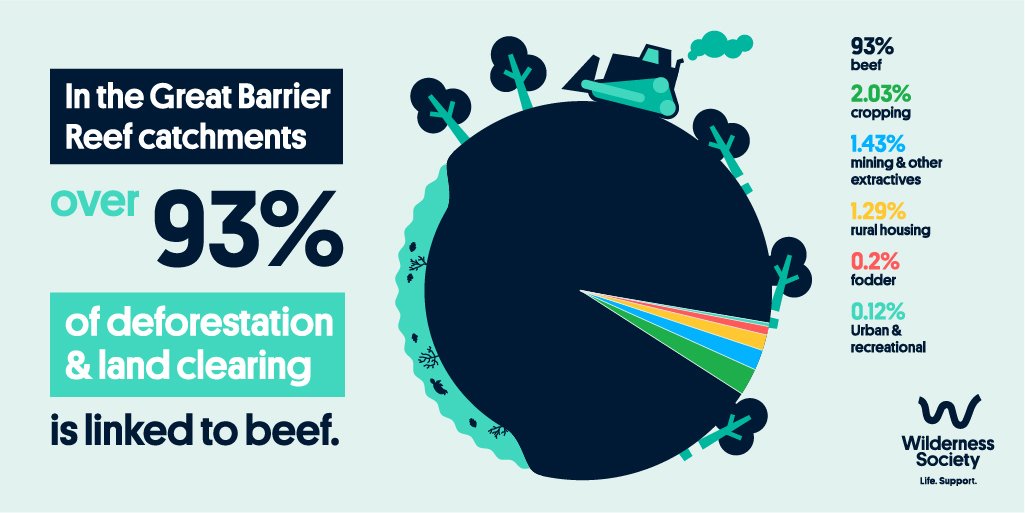
“Beef can be produced without deforestation. There is a global trend towards deforestation-free beef and Australian companies need to get on board.” says Gemma Plesman, Wilderness Society Campaigner.
Right now, Australian customers have no way of knowing if the beef they’re buying is linked to deforestation or not.
None have gone far enough, and many have done little or nothing.
If corporations have the ability to destroy Australia’s forests, they also have the power to help save them.
So are any of our major beef retailers making moves to ensure the products we buy - from the supermarket cabinet or in a burger bun - are deforestation-free?
We surveyed big companies from across the entire supply chain, to understand whether they are taking steps to eliminate deforestation from their practices.
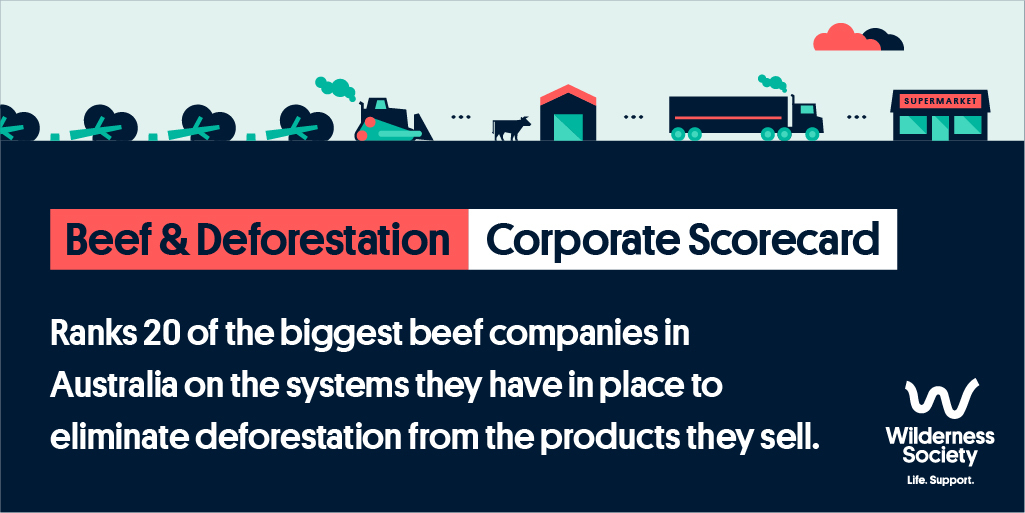
The major retailers of beef on this scorecard, which are the endpoint for most supply chains, are household names like Coles, Woolworths, McDonald’s, Hungry Jack’s, Aldi, IGA/Metcash, Subway and Costco.
“None of these companies at the moment has an adequate system in place to rule out deforestation from their supply chain”
The Scorecard
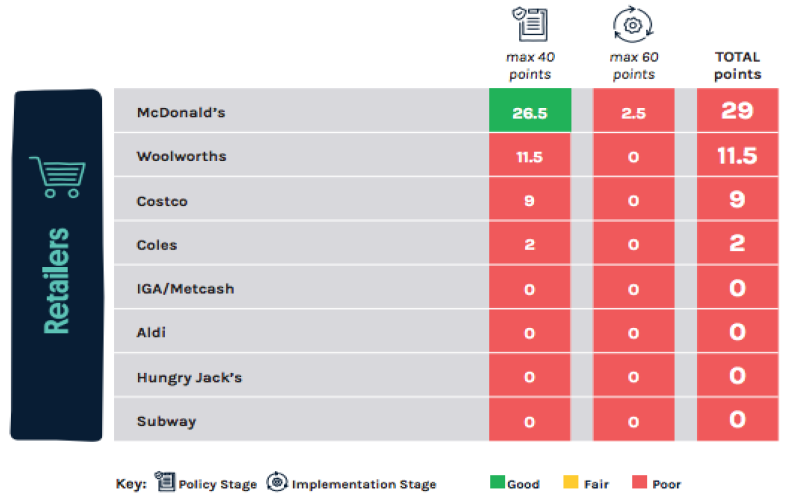
“We found that only one company - McDonald’s - had a strong deforestation policy, while only one other company, Woolworths, had a deforestation policy at all. However, we found that none of the companies has an adequate implementation of deforestation-free practices”
What You Can Do
There are two ways you can contribute to ending deforestation today:
- Contact your State and Federal Member of Parliament and tell them you support strong laws to end deforestation and incentives to keep trees standing and restore degraded landscapes.
- Send a message to the big retailers (supermarkets, fast food chains) where you buy your beef (or who you know sells beef) and tell them you don’t want koalas in your burger. We need to ask them if they have a policy to remove deforestation from their supply chain and how they plan to make it happen.
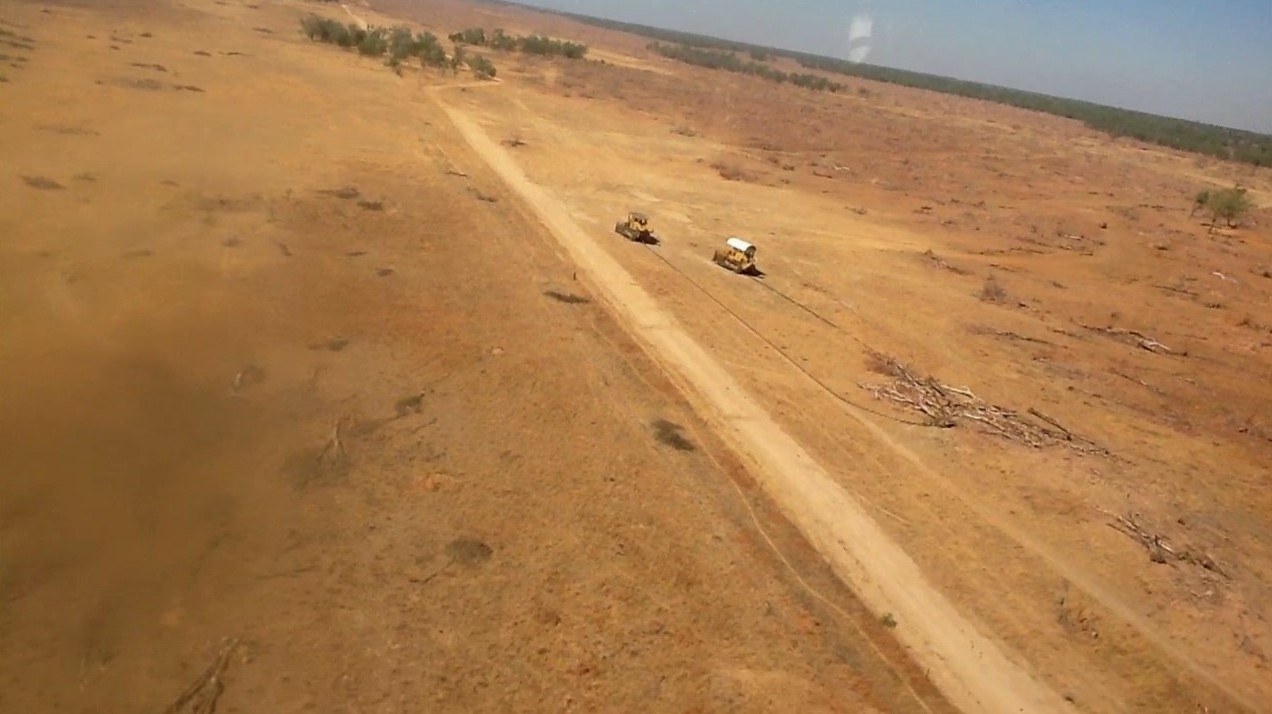
An MCG-sized area of forest and bush is bulldozed every 2 minutes in Australia. To give life a chance, we need strong, sensible deforestation laws.
Commit to deforestation-free
Deforestation-free beef is possible. Worldwide, consumers are demanding it. Corporations are responding with global commitments to remove deforestation and land clearing from their supply chains.
Australia’s producers, processors, retailers and fast-food restaurants need to follow the growing trend and adopt a sector-wide commitment to deforestation-free practices by 2020. To not do so places future export markets at risk.
We are asking companies to do three things to address this problem:
- Commit to a policy
Produce and publish a strong formal policy to remove deforestation from their supply chain. - Make it happen
Implement their commitments, with clear time-bound action plans, and ongoing verification of deforestation and degradation-free supply chains. - Support sector change
Actively work towards sector-wide reform and support government and civil society efforts to protect forests and bushland.
2020 is the date for deforestation-free
Globally, many of the biggest companies in the world have committed to a date to be deforestation-free. The New York Declaration on Forests’ goal to halve global deforestation by 2020 has motivated public commitments from many beef retailers.
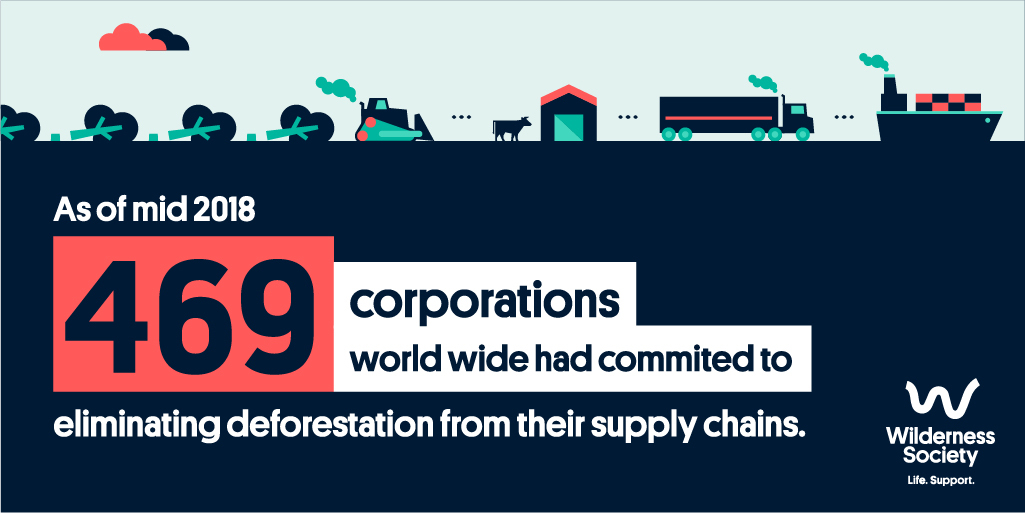
McDonald’s has committed to eliminating deforestation from its beef supply chain by 2020.
The lack of policies and action in Australia presents a serious challenge to companies that source our beef. This is a particular risk for those who have promised their customers and other stakeholders (including financial institutions) that the beef they buy is not linked to deforestation.
The good news is that the most recent Queensland data (2018) shows a minority of producers responsible for the large rates of deforestation. This means it’s possible and achievable for corporations who buy and sell beef to eliminate deforestation from their supply chains.